 On the night of Round 8 at the FIDE Chess Olympiad, a dazzling event took place at the Intercontinental Hotel in Budapest. The chess gala, dedicated to the centenary of the International Chess Federation, celebrated the exceptional achievements and contributions of individuals, groups, and organizations within the chess community. Over the past century, chess has evolved and flourished, and this evening was all about honoring those who have made remarkable impacts on the game we love.
On the night of Round 8 at the FIDE Chess Olympiad, a dazzling event took place at the Intercontinental Hotel in Budapest. The chess gala, dedicated to the centenary of the International Chess Federation, celebrated the exceptional achievements and contributions of individuals, groups, and organizations within the chess community. Over the past century, chess has evolved and flourished, and this evening was all about honoring those who have made remarkable impacts on the game we love.
After the FIDE anthem played, FIDE President Arkady Dvorkovich and FIDE Vice President Mahir Mammedov welcomed everyone to the gala. Mahir Mammedov said: “The first century of FIDE’s life has been full of remarkable events, great personalities, and memorable matches. For this, we must thank the founders of FIDE!”

Following this introduction, the main event of the evening, the FIDE 100 Awards, commenced. Selecting the best of the best in their respective fields was no easy task, and a special panel of experts and professionals worked diligently on the selections. The jury made their decisions in 18 categories: Best Player – Man, Best Player – Woman, Best Team – Men, Best Team – Women, Best Book, Best Trainer, Best Trainer – Woman, Best Arbiter – Man, Best Arbiter – Woman, Most Memorable FIDE Tournament, Most Memorable Private Tournament, Social Impact, Advocate for Women in Chess, Best Educator, Best Photo, Best Social Media Influencer, Best Journalist, and Inclusivity. Each winner received a special FIDE Awards trophy with their name and the title of their nomination engraved on it. Additionally, there were eight special FIDE 100 medals from the FIDE President Arkady Dvorkovich honoring those who have significantly contributed to chess development throughout their careers.
Let’s celebrate the winners one by one.
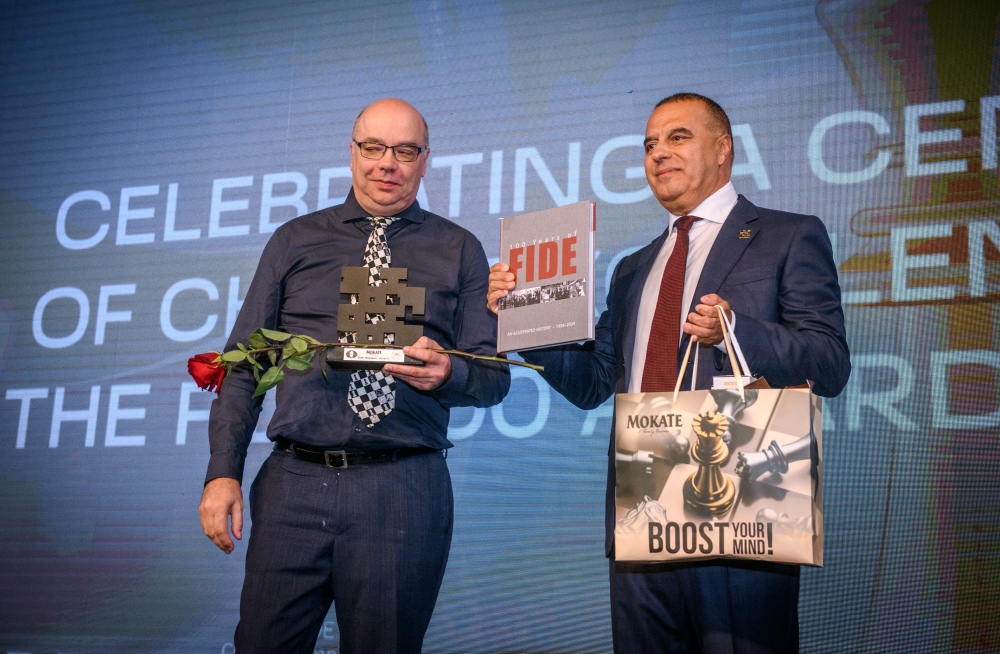
Advocate for Women in Chess: Jean Michel Rapaire
FIDE aims to increase the representation of women in chess, and each initiative supporting this goal is invaluable. Jean Michel Rapaire’s activities are widely known in the chess world. He has led a superstar women’s team to multiple European Club Cup victories and organized some of the most important women’s events, such as the Women’s Candidates, FIDE Grand Prix, and European Women’s Championships. Thanks to his efforts, Monaco has become the capital city of women’s chess.
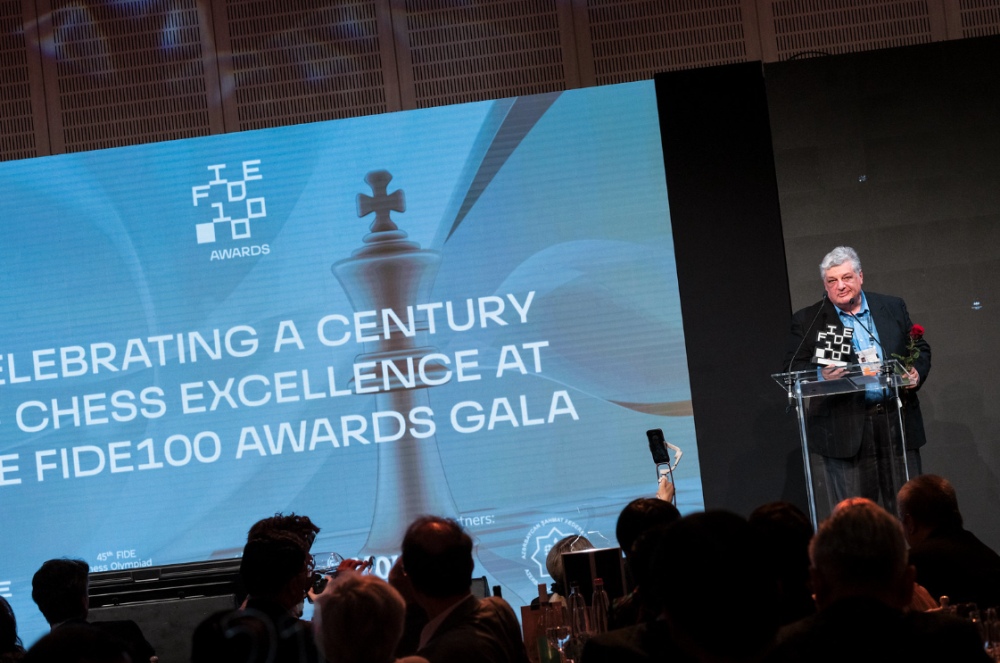
Social Impact: Chess for Freedom, Cook County Sheriff’s Office
The award was presented to Mikhail Korenmann, Project Lead at the Cook County Sheriff’s Office. FIDE and the Cook County Sheriff’s Office (Chicago, USA) signed a cooperation agreement and launched the “Chess for Freedom” program in May 2021, aiming to use chess as a powerful tool for the reintegration of inmates. Initiated with an online conference and an exhibition tournament featuring four participating countries, it has now grown into a global movement involving almost 60 countries and more than 120 teams participating in the FIDE Intercontinental Online Championships for Prisoners. The project also includes a global conference and training programs carried out in hundreds of institutions worldwide. The Chess for Freedom project received the prestigious Anthem Awards in 2023.
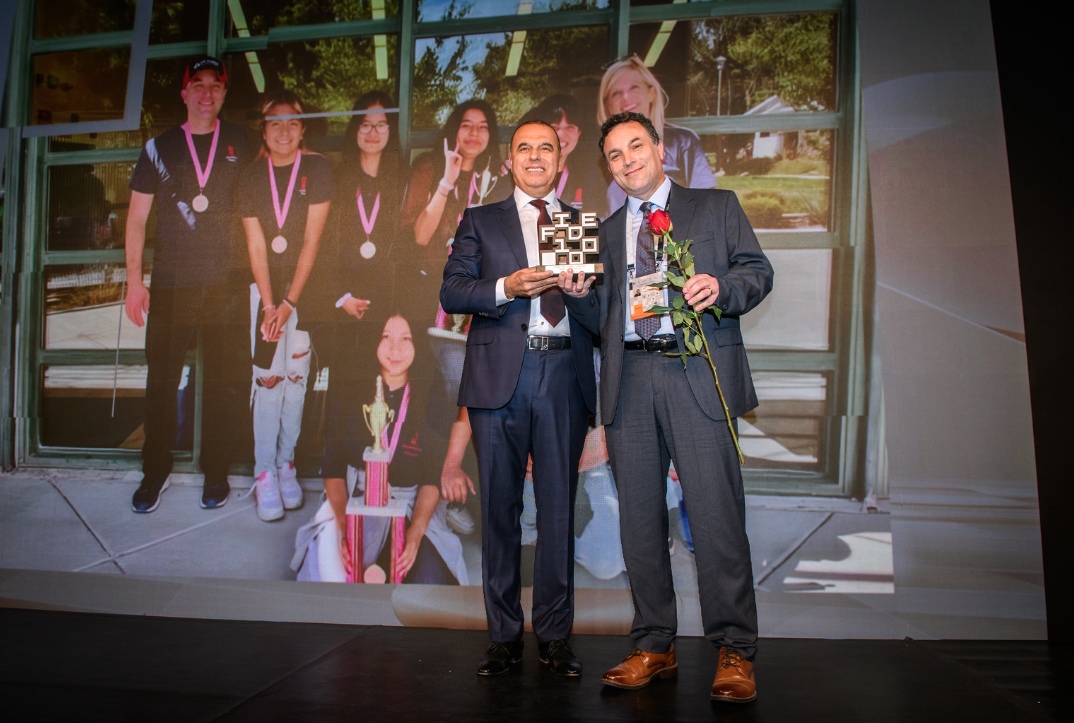
Best Educator: Abel Talamantez
Abel Talamantez, a coach at Hamilton K-8 School in the USA, has been teaching chess in classrooms for 12 years. He uses the game as an educational tool to develop essential skills in children, such as grit, patience, resilience, and the ability to learn from mistakes. His goal is not only to help students improve their chess skills but also to equip them with life skills that contribute to their overall success. Abel Talamantez holds several prestigious titles, including Lead School Instructor (LSI) 2021, FIDE Instructor (2021), School Instructor (2021), and International Arbiter (2023). He has received numerous accolades for his groundbreaking work.
Abel Talamantez emphasizes, “We fully believe that the success of our chess program is not about trophies and competitions, but about engaging the mind of the student and making learning fun.”
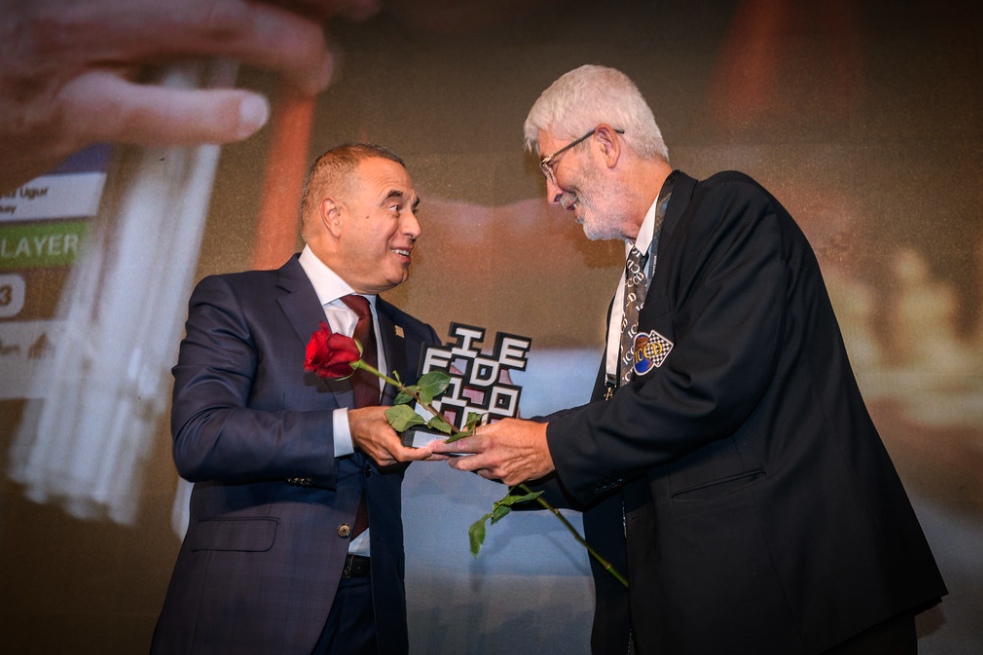
Inclusivity: International Physically Disabled Chess Association (IPCA), International Braille Chess Association (IBCA), and International Chess Committee of Deaf (ICCD)
Three chess organizations that are making a significant difference in promoting inclusivity in the sport were declared the winners. These FIDE-affiliated organizations are strong partners in organizing events for people with disabilities, including the 2023 Chess Olympiad for People with Disabilities. The awards were presented to IPCA President Andrei Gurbanov, IBCA President Jörgen Magnusson, and ICCD President Phillip Gardner.
Best Trainer – Man: Vladimir Tukmakov
A Ukrainian chess grandmaster and trainer, Vladimir Tukmakov truly shines in the realm of chess coaching. Under his guidance, the Ukrainian team achieved Olympic glory in 2004 and 2010. His coaching prowess also yielded numerous medals in European and World Team Championships, solidifying his reputation as one of the best captains and trainers in the world. His mentorship shaped the careers of top chess players like Anatoly Karpov, Viktor Korchnoi, and Anish Giri. Tukmakov is also the author of several chess bestsellers, and his insightful writings continue to inspire generations of chess enthusiasts worldwide.
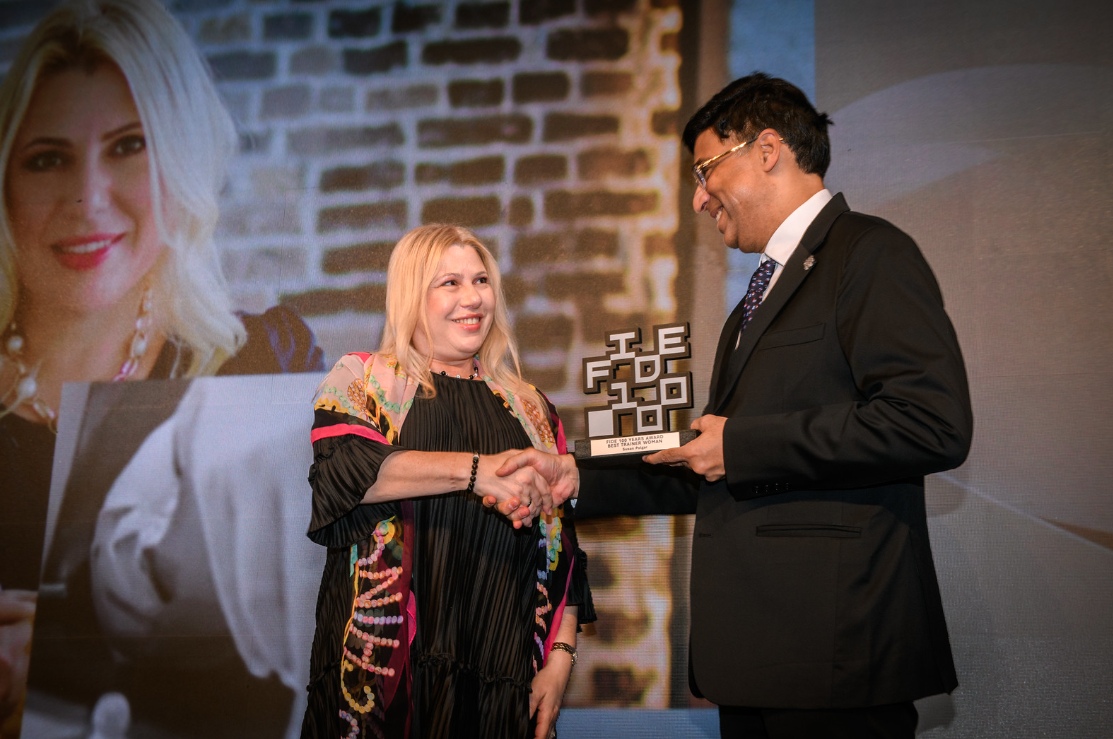
Best Trainer – Woman: Susan Polgar
Susan Polgar achieved incredible success as a player before transitioning to a career as a trainer, where she has passed on her vast experience. She was the Women’s World Chess Champion from 1996 to 1999. At the age of 15, she became the top-ranked female chess player in the world. In 1991, she became the third woman to be awarded the title of Grandmaster. Throughout her career, she won eleven medals at the Women’s Chess Olympiad (4 gold, 4 silver, and 3 bronze).
As a trainer, writer, and promoter, Polgar sponsors various chess tournaments for young players and heads the Susan Polgar Institute for Chess Excellence (SPICE) at Webster University. She also served as the Chairperson or co-chair of the FIDE Commission for Women’s Chess from 2008 until late 2018.
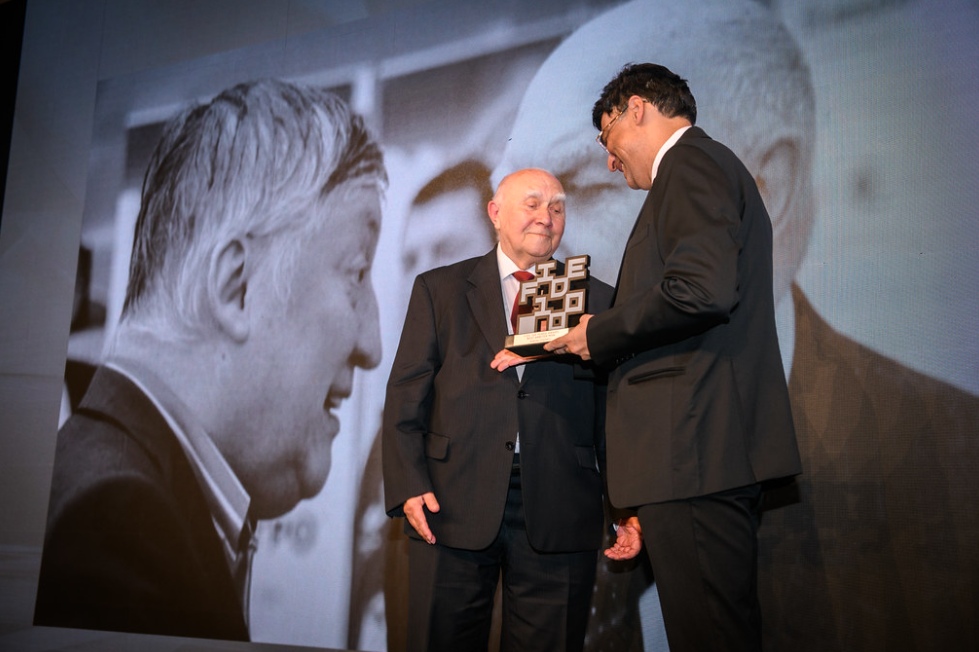
Best Arbiter – Man: Andrzej Filipowicz
Andrzej Filipowicz is one of the most fascinating personalities in the chess world. He has worn many hats: chess player, arbiter, organizer, editor, writer, and civil engineer specializing in steel structures. He is known for his strong personality, sharp intelligence, well-defined convictions, and a curious sense of humor.
In 1984, Filipowicz was awarded the title of FIDE International Arbiter. He has served as the chief arbiter in numerous major chess tournaments, including the World Chess Championship Match 2000, the Candidates Tournament 2002, the FIDE World Blitz Championship 2006, the World Junior Championship 2010, the World Rapid & Blitz Championships 2012 and 2013, the World Women’s Rapid & Blitz Championship 2014, the World Championship Match 2014, and many others. Filipowicz admits that the most interesting matches from an arbiter’s perspective were Kasparov vs. Kramnik in London 2000 and Carlsen vs. Anand in Sochi 2014.
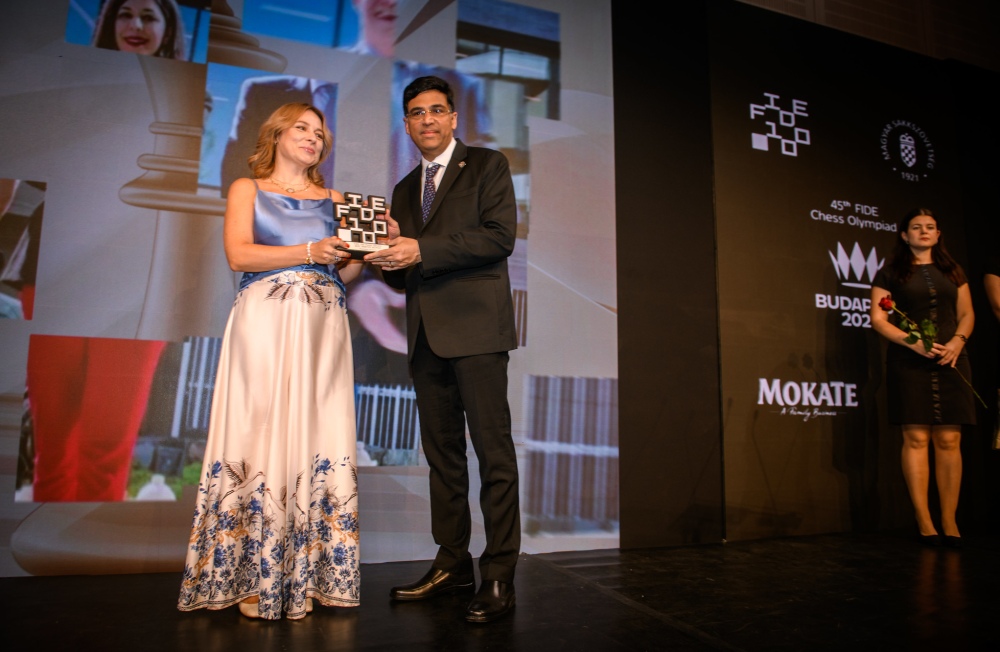
Best Arbiter – Woman: Anastasia Sorokina
WIM Anastasia Sorokina has made significant contributions to the chess world as a player, arbiter, organizer, and official. She became an International Arbiter in 2002 and has served as the chief arbiter in numerous prestigious chess tournaments, including the Women’s World Chess Championships in 2016, 2018, and 2023, and the Candidates Tournament 2022. She has also been an arbiter at several Chess Olympiads and FIDE Grand Prix events.
In addition to her arbiter roles, Sorokina is a project leader for the “Infinite Chess” FIDE Project, which provides chess for kids with autism spectrum disorder, and the “Chess for Protection: Girls Club,” which supports refugees.
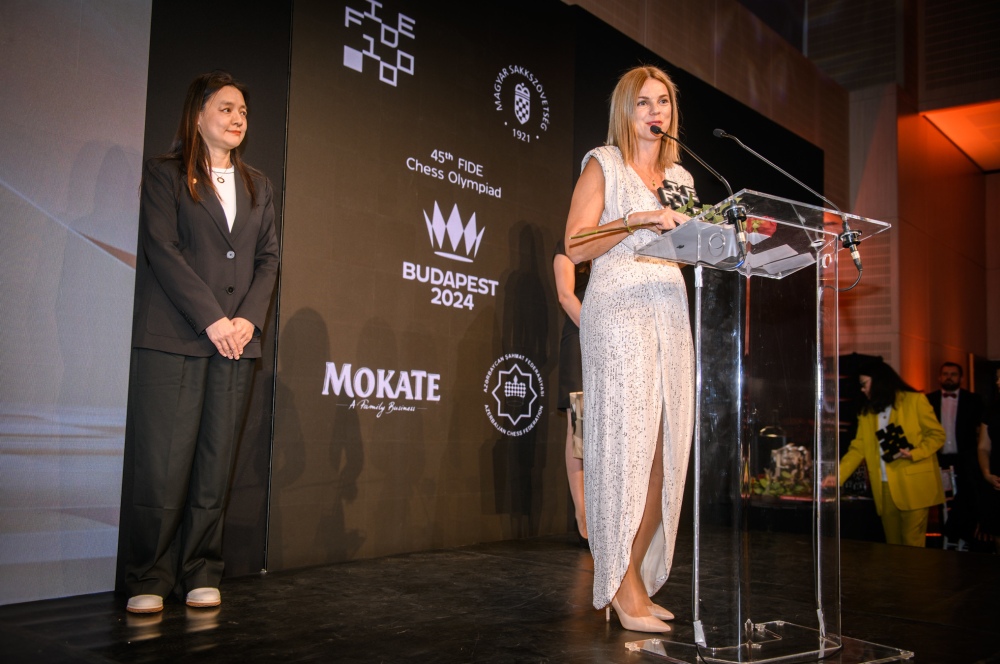
Best Photo: Anastasia Karlovich
Anastasia Karlovich, a chess journalist and Woman Grandmaster, has a sharp yet subtle eye that captures the essence of chess events. She strikes a perfect balance between reporting and conveying the emotional richness of competitions. For the award, over 150 pictures from 16 photographers were submitted to FIDE, and Anastasia’s works stood out as the most appealing to the jury.
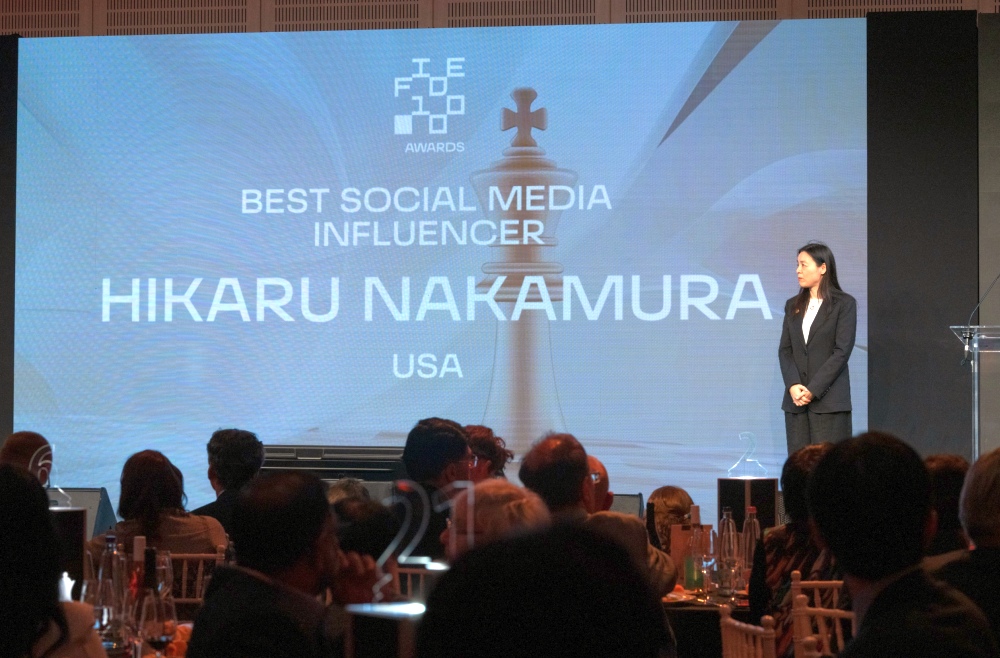
Best Social Media Influencer: Hikaru Nakamura
Hikaru Nakamura is an American chess grandmaster, streamer, YouTuber, five-time U.S. Chess Champion, and the World Fischer Random Chess Champion. A chess prodigy, he earned his grandmaster title at the age of 15, becoming the youngest American to do so at the time.
He has millions of fans and followers on Twitch, YouTube, Twitter, and Instagram, where he shares his passion for chess and entertains his audience with witty commentary and amazing skills.
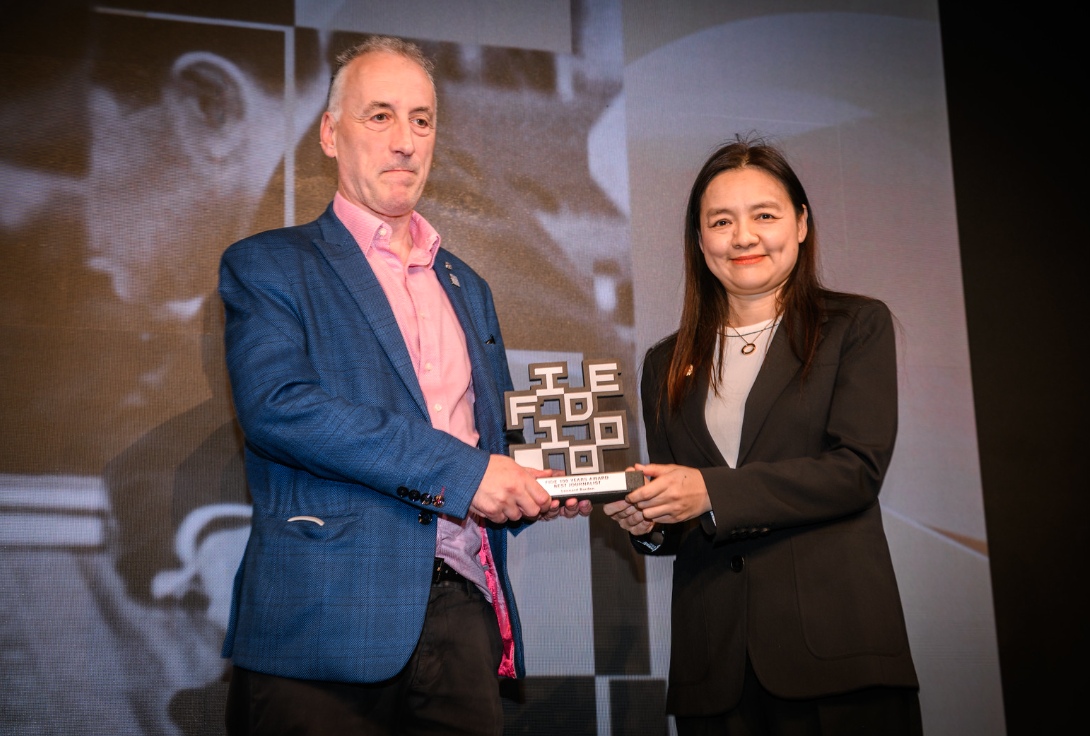
Best Journalist: Leonard Barden
Leonard Barden’s journalism has played a crucial role in promoting chess in both national and international media. He holds the record for the longest-running column in media history, with his daily Evening Standard column running for an incredible 63 years, 7 months, and 18 days. Barden continues to be prolific, writing weekly for The Guardian and the Financial Times. Now 94, this titan of chess journalism may not have many more opportunities to be recognized as he truly deserves. Award was received by Malcolm Pein.
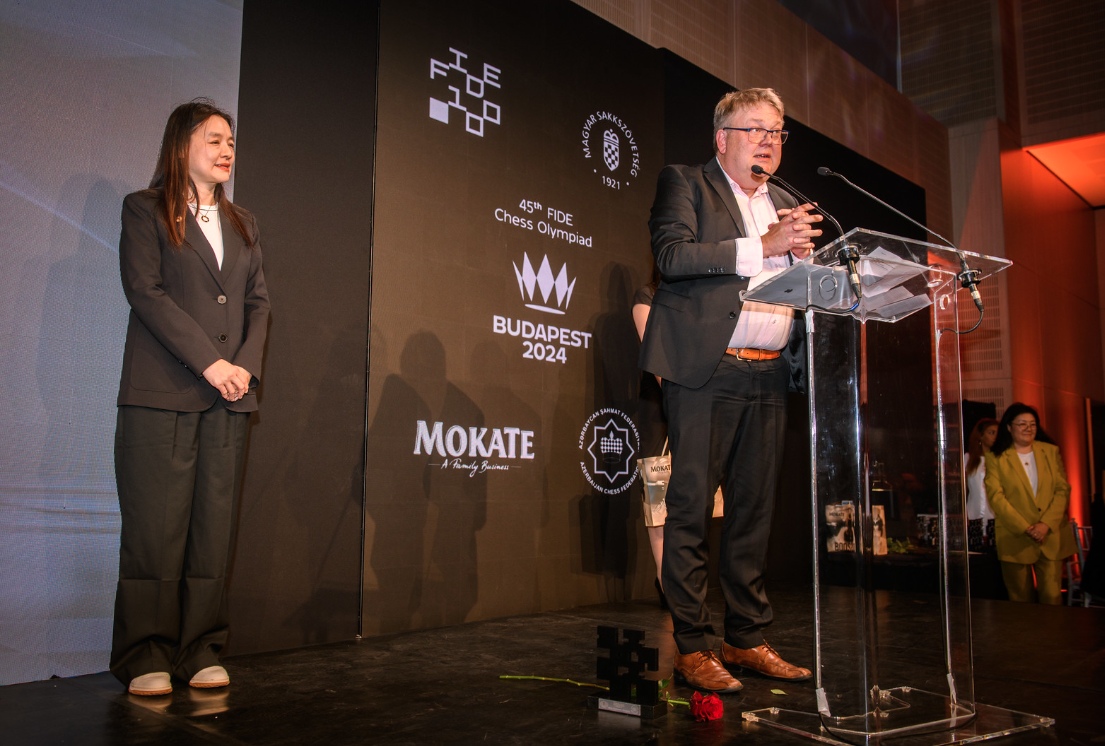
Most Memorable FIDE Tournament: World Championship Match 1972: Spassky vs. Fischer
Considered one of the most exciting world championships, the 1972 match between giants Bobby Fischer and Boris Spassky in Iceland has become a highlight event of the century. This match ended the Soviet Union’s dominance in chess and inspired a “Fischer boom.”
Game one featured Fischer’s infamous 29…Bxh2?!, one of the most analyzed moves in chess history. Fischer’s forfeit in game two led to conspiracy theories involving cameras, chairs, and electronic bugs. Remarkably, 9 of the first 13 games were decisive, a rarity in world championship matches. The match has been immortalized in media, Hollywood movies, documentaries, and even FBI and KGB files released decades later.
Award was received by the Iceland Chess Federation’s president Gunnar Bjornsson.
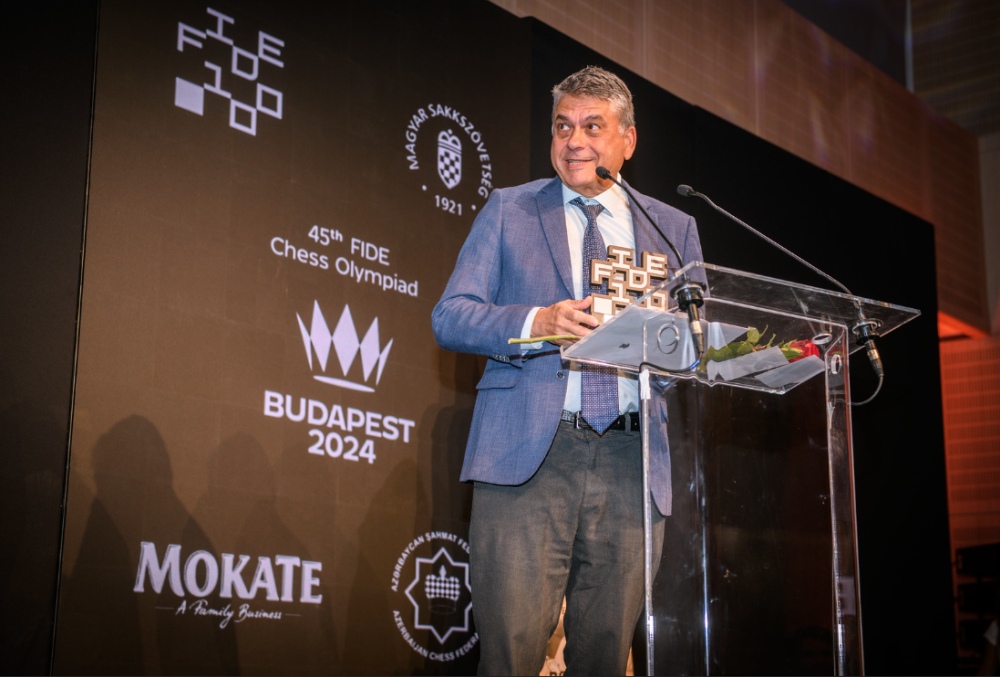
Most Memorable Private Tournament: Linares International Tournament
Established in 1978, the Linares International Chess Tournament quickly became the crème de la crème of the chess world, attracting the very best players from around the globe. Held annually at the end of February in the enchanting city of Linares, Spain, it became a veritable mecca for those who lived and breathed chess. The 1994 tournament marked a milestone in the history of Linares. It boasted an average Elo rating of 2685, the highest ever at that time. The field included legendary players such as Karpov, Kasparov, Anand, Ivanchuk, Polgar, and Topalov, among others.
The award was received by Javier Ochoa de Echaguen.
Best Book: My 60 Memorable Games by Bobby Fischer
Because of its universality combined with the author’s name, “My 60 Memorable Games” is considered by many to be the best chess book of the century. Translated into ten languages, it stands among the classics of chess literature. Published by Simon and Schuster in 1969, Bobby Fischer analyzes his most important and representative games in this book. He delves into the strategic considerations, tactics, and occasional blunders that occur under the pressure of tournament play. Fischer also assesses his opponents’ thinking.
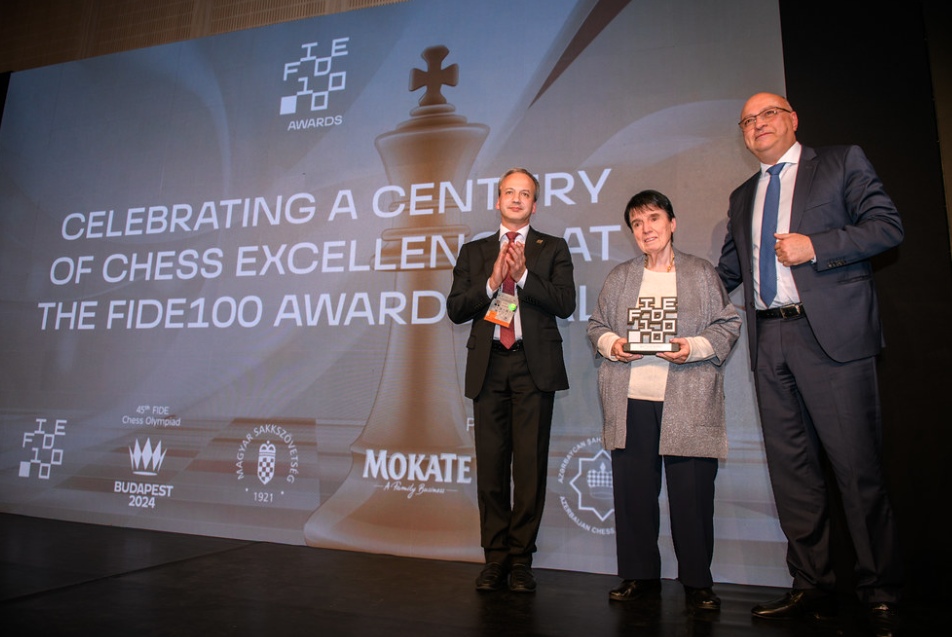
Best Team – Women: Team Georgia
The Soviet domination at the Women’s Chess Olympiads was impressive from 1957 until 1988. After the breakaway from the Soviet Union, Georgia took over the leadership, followed by China, Russia, and Ukraine. Georgia has won a total of 6 gold medals, China has also won 6 gold medals, and Hungary demonstrated top achievements with their victories in 1988 and 1990.
The award was received by Zurab Azmaiparashvili.
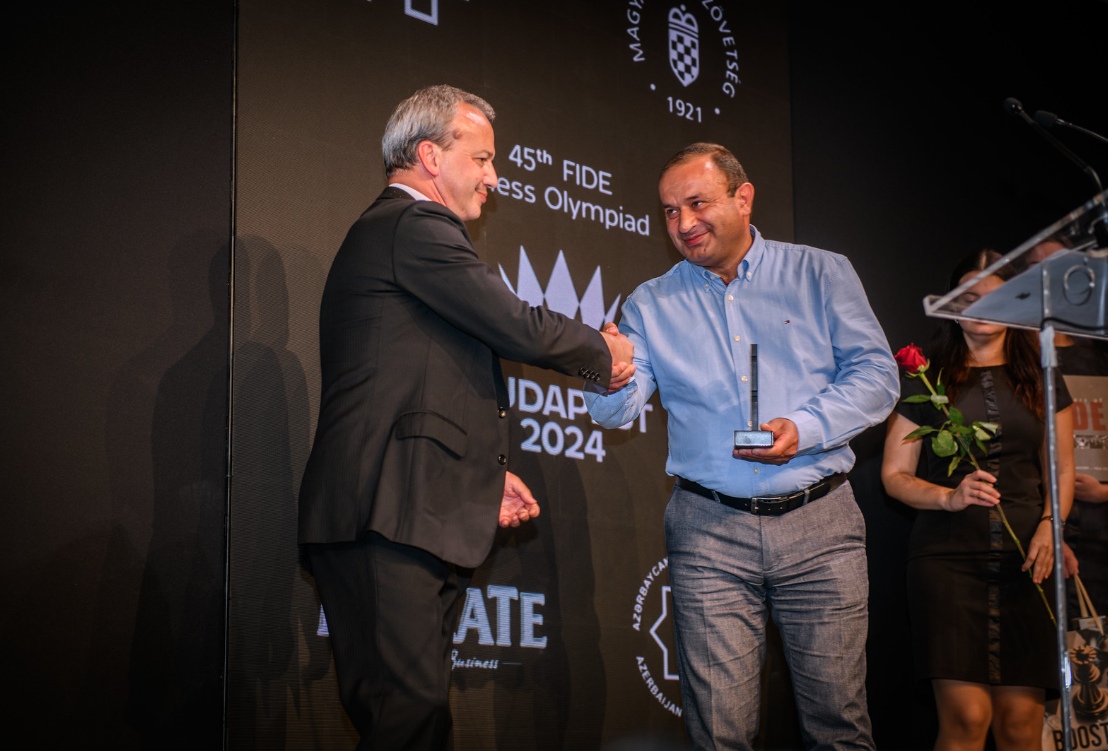
Best Team – Men: Team Armenia
“One warrior is good, but if you have a great team, you can turn the world around.” While Team USSR would be the unbeaten leader in both Men and Women categories based on the number of Olympiad medals, the Jury decided to choose a currently existing country. Armenia has outperformed others, winning three times, and China has won two gold medals in the last ten years.
The award was received by Armen Gevorgyan, the Executive Director of the Armenian Chess Federation.
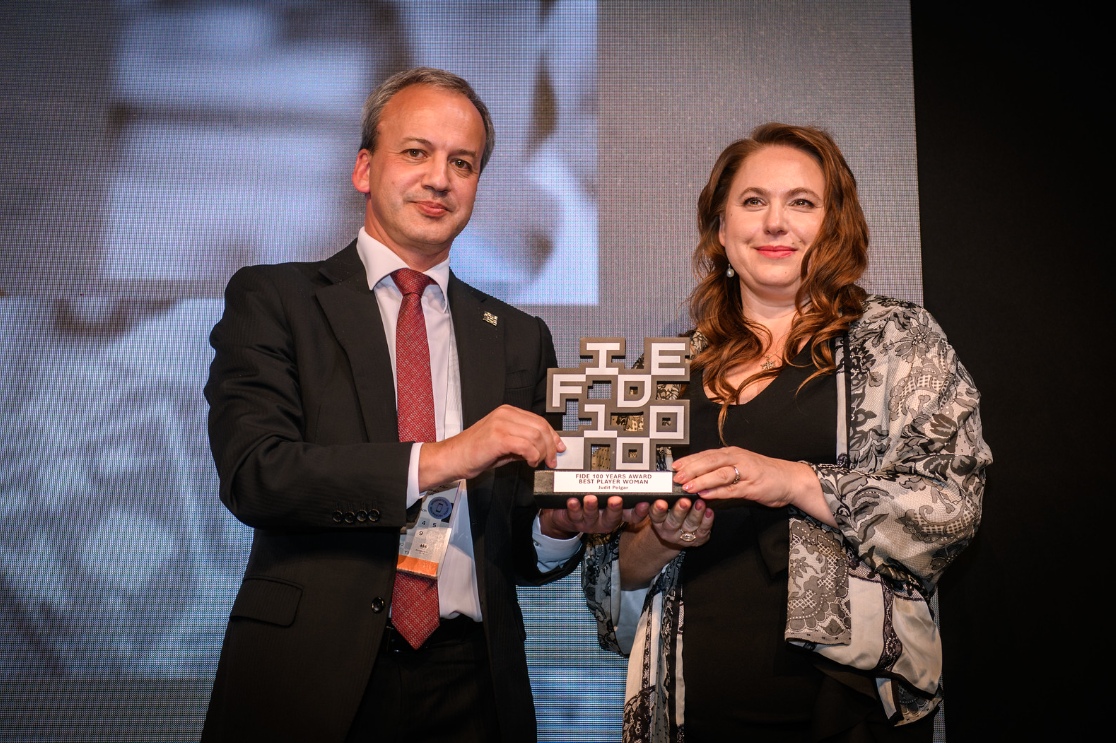
Best Player – Woman: Judit Polgar
Women’s chess has always been a priority for FIDE, with the first Women’s World Championship organized in 1927. Among ten nominations from the Expert Committee, public voting highlighted Judit Polgar, Nona Gaprindashvili, and Vera Menchik, with the jury unanimously selecting Judit Polgar.
Judit Polgar is widely regarded as the strongest female chess player of all time. She became a Grandmaster at 15, breaking Bobby Fischer’s record, and was the youngest player to enter the FIDE top 100 at age 12. She is the only woman to surpass a 2700 Elo rating, reaching a peak world ranking of No. 8 in 2004.
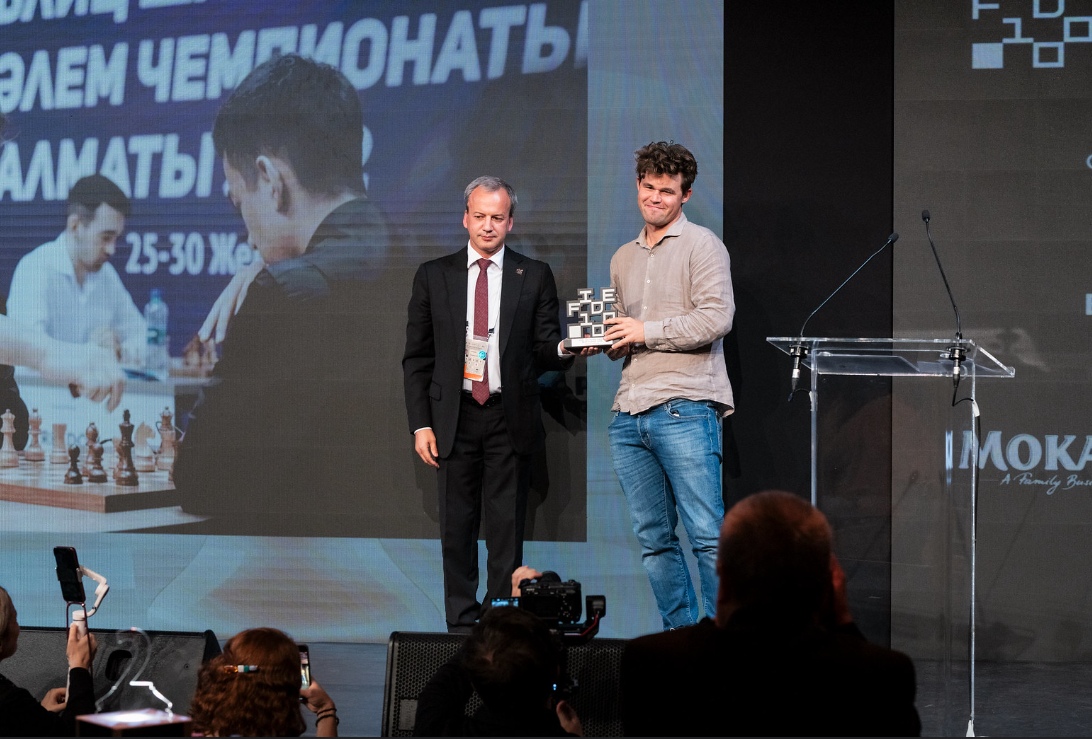
Best Player – Man: Magnus Carlsen
Magnus Carlsen is a Norwegian chess grandmaster and a five-time World Chess Champion. He is also the reigning five-time World Rapid Chess Champion, seven-time World Blitz Chess Champion, and the winner of the FIDE World Cup. Carlsen has held the No. 1 position in the FIDE world chess rankings since July 1, 2011, trailing only Garry Kasparov in time spent as the highest-rated player in the world. His peak rating of 2882 is the highest in history.
After the awards in the nominations, the ceremony moved to the special Presidential awards, honoring those who have significantly contributed to chess development throughout their careers. Eight prominent personalities received honorary FIDE 100 medals.
Fridrik Olafsson
Friðrik Ólafsson is an Icelandic chess grandmaster and a six-time Icelandic Chess Champion. He served as FIDE President from 1978 to 1982, succeeding Max Euwe. During his tenure, he focused on attracting commercial sponsors to FIDE and presided over the 1981 Karpov–Korchnoi World Championship match.
Award received by Gunar Olafsson.
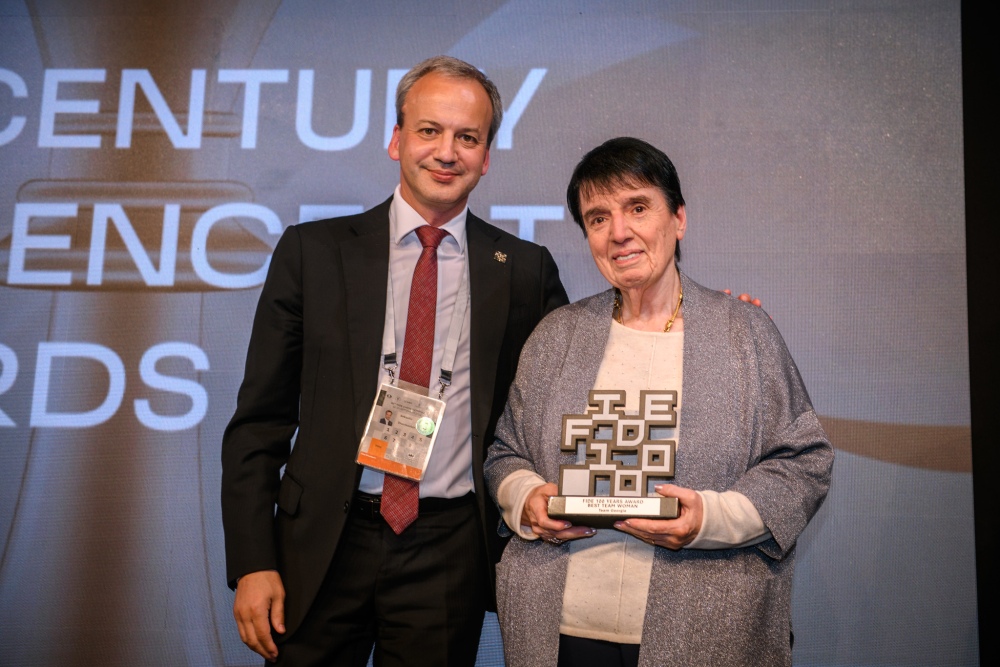
Nona Gaprindashvili
Nona Gaprindashvili (born May 3, 1941) is a Georgian chess Grandmaster known for her aggressive style of play. She is a five-time Women’s World Champion, undefeated from 1962 until 1978, when she passed the title to Maia Chiburdanidze. Nona has won eleven Olympic gold medals playing for the teams of Soviet Union and Georgia and was the first woman to receive the title of chess Grandmaster in the mid-70s.
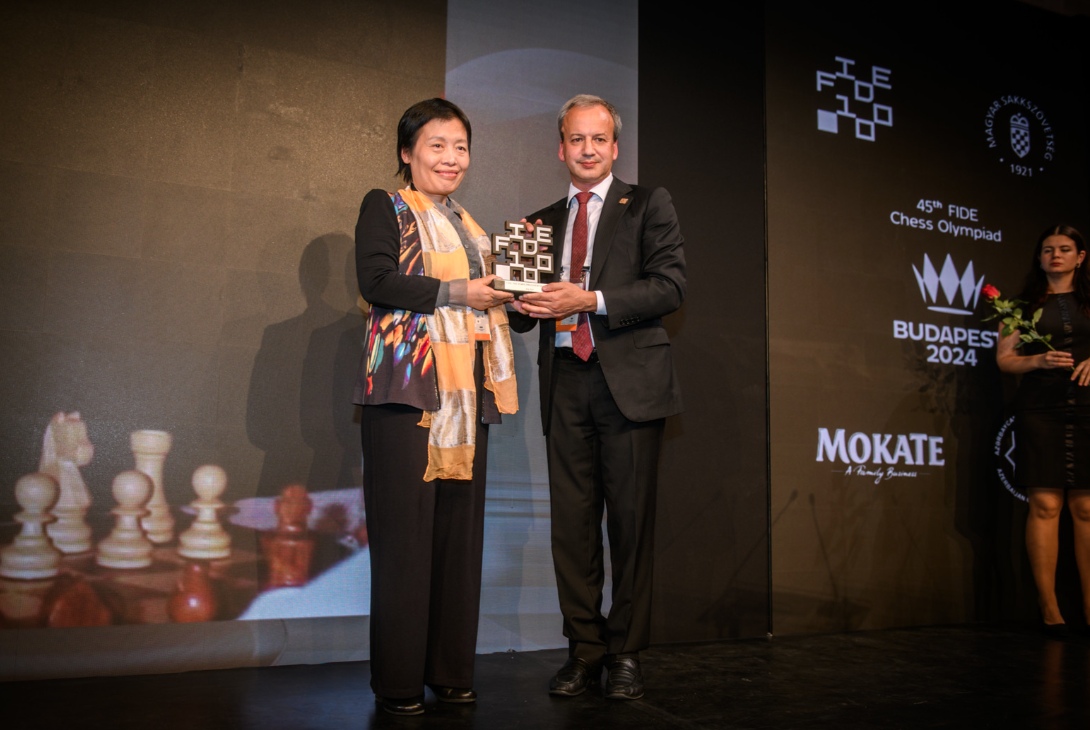
Xie Jun
Xie Jun (born October 30, 1970) is a Chinese chess grandmaster and the first Asian woman to become a chess grandmaster. She had two separate reigns as Women’s World Chess Champion, from 1991 to 1996 and again from 1999 to 2001. Xie is one of three women to have at least two separate reigns, alongside Elisaveta Bykova and Hou Yifan. She is currently the Vice President of FIDE and was inducted into the World Chess Hall of Fame in 2019.
Smbat Lputian
Smbat Lputian is an Armenian chess grandmaster and educational chess facilitator. Under his leadership, chess was introduced in Armenian schools, and he led the FIDE Educational Commission for many years, promoting educational chess worldwide. Currently, more than 25 million children participate in educational chess, with FIDE aiming to double this number in the coming years.
Award received by Armen Gevorgyan, the Executive Director of the Armenian Chess Federation.
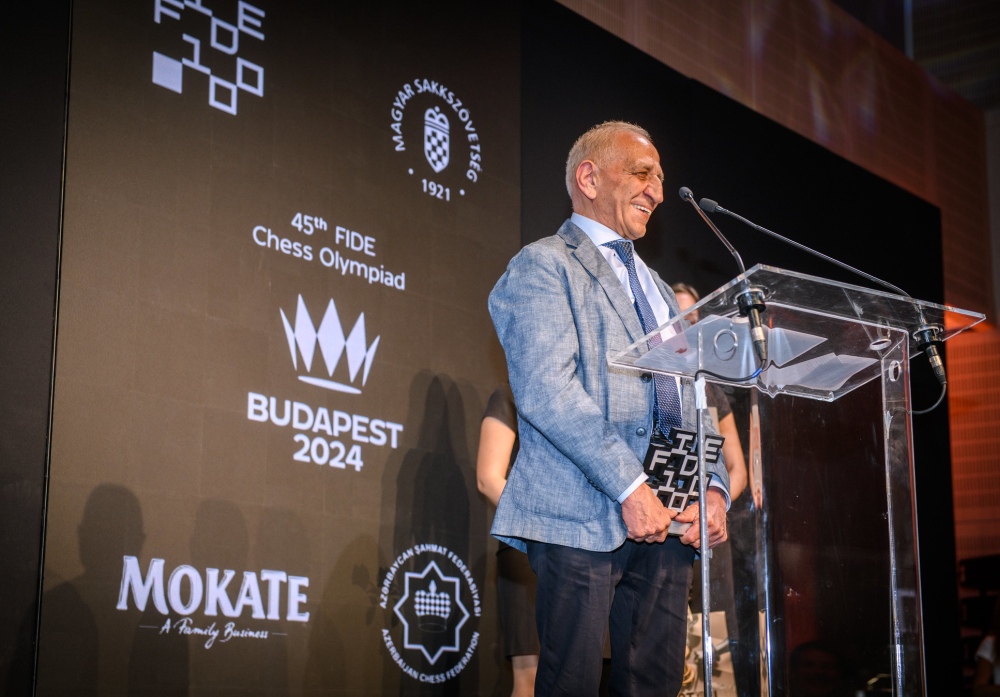
Faig Gasanov
The patriarch of Azerbaijani chess, Faig Gasanov, has significantly contributed to the development of the game in one of the world’s strongest chess countries. He became an international arbiter in 1980. Gasanov has served as Chief Arbiter at Olympiads, World Cups, Grand Prix events, and Youth Championships, and as Deputy Chief Arbiter at the Xie Jun – Susan Polgar match and the World Teams Championship. He has been the Vice President of the Azerbaijan Chess Federation since 1975. Gasanov is also known for hosting the weekly “Şahmat klubu” (Chess Club) program on AzTV for 55 years.
Geurt Gijssen
Geurt Gijssen is a Dutch chess International Arbiter (1979) and FIDE Honorary Member (2013). He is well known as a chess arbiter of the highest level, having been the Chief Arbiter at Chess Olympiads (1998, 2000, 2002, 2006) and World Chess Championship matches, including Kasparov vs. Karpov (1987, 1990), Karpov vs. Kamsky (1996), Karpov vs. Anand (1998), and Kramnik vs. Topalov (2006).
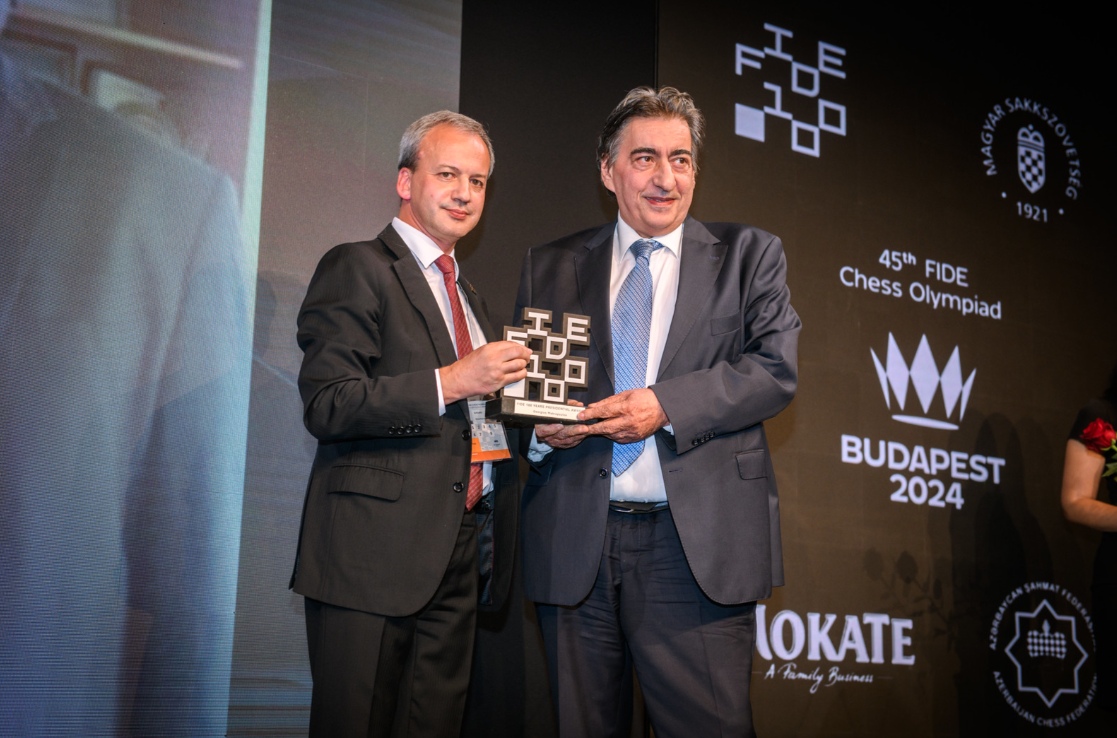
Georgios Makropoulos
Georgios Makropoulos is a Greek International Master, journalist, and chess politician. He won seven Greek Chess Championship titles between 1971 and 1985. Makropoulos has held various FIDE positions, including Vice President (1986-1990), General Secretary (1990-1996), Deputy President (1996-2018), and Vice President since 2018. He has been a central figure in chess politics for nearly forty years.
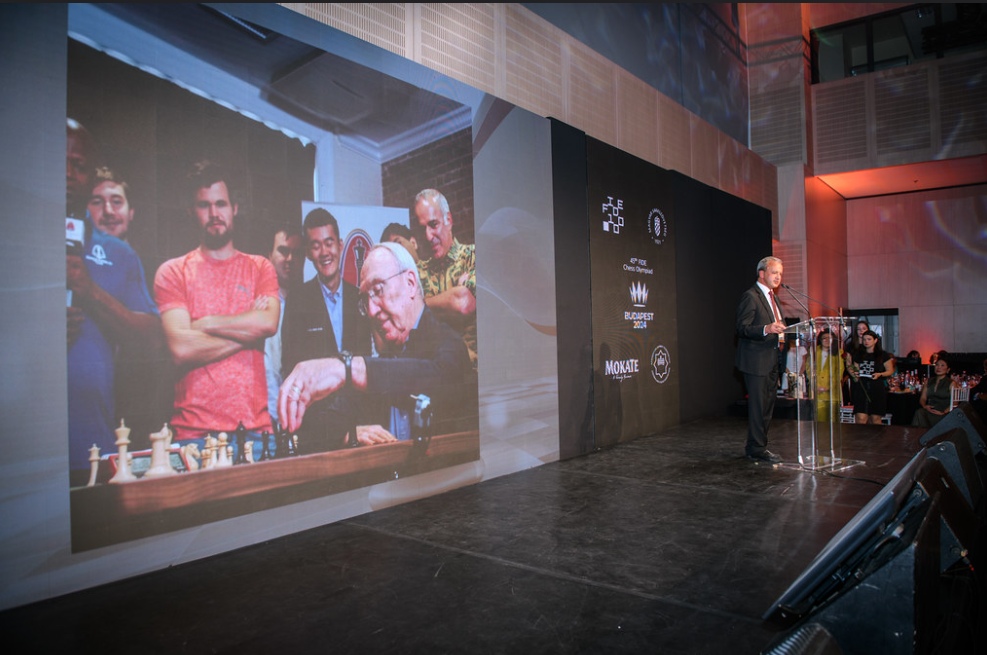
Rex Sinquefield
Rex Sinquefield is an American chess philanthropist who has transformed his hometown of Saint Louis into the Chess Capital of the United States. In 2008, he founded the Saint Louis Chess Club (STLCC) with his wife, Dr. Jeanne Cairns Sinquefield, and later funded the relocation of the World Chess Hall of Fame to Saint Louis. The STLCC has become the home of championship chess in the U.S., hosting numerous national tournaments and bringing the benefits of chess to over 60,000 students. Rex has also made history with the creation of the Sinquefield and Cairns Cups, the strongest tournaments ever held on American soil. His efforts have attracted top players and revitalized chess in the United States.
Unfortunately, Rex Sinquefield could not make it to the ceremony, but his medal will reach him later.
Photos: Photos: Michal Walusza and Maria Emelianova



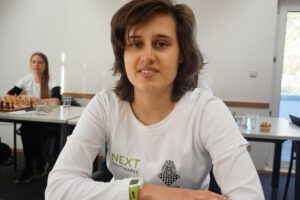


More Stories
Chess in New York: A walk through parks, clubs and history
FIDE World Rapid and Blitz in New York preview: An epic ending to 2024
„Schach als Brücke für Frieden und Hoffnung“
Season’s greetings from FIDE President
Full list of participants for 2024 WRB announced
Gukesh D crowned 18th FIDE World Champion